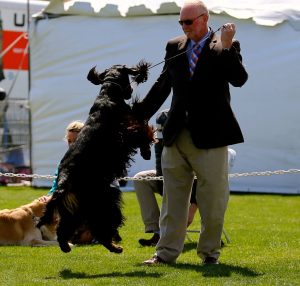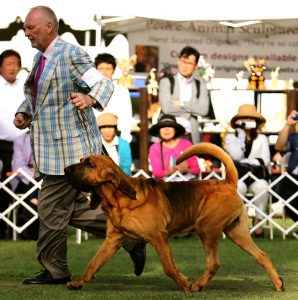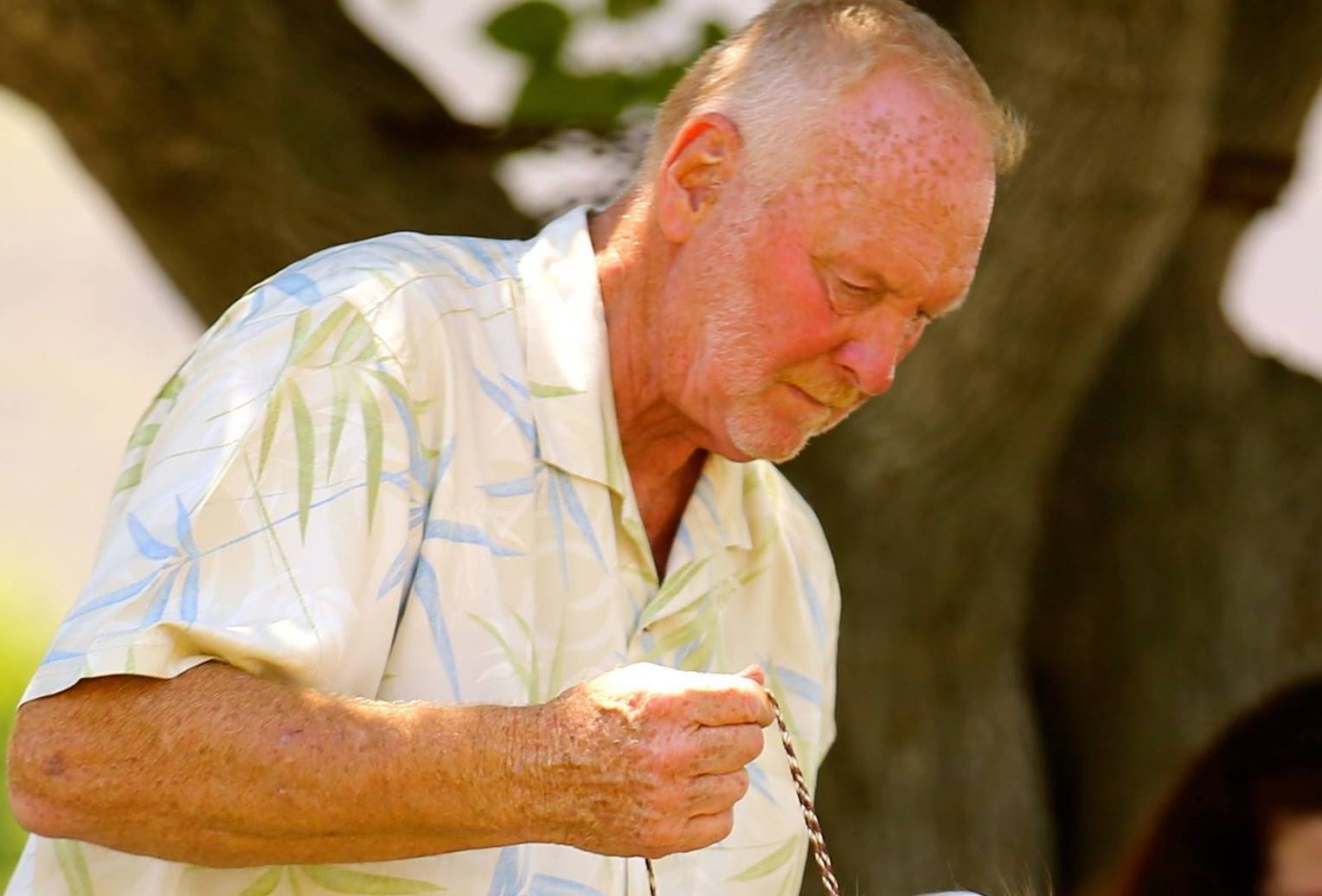717 — Showing Dogs on a Shoestring Budget
717 — Showing Dogs on a Shoestring Budget
Smart Strategies for Budget-Friendly Success in the Conformation Ring
By Laura Reeves • Pure Dog Talk
Pure Dog Talk is the voice of purebred dogs. We bring you conversations with legends of the sport and offer practical, actionable guidance for creating an extraordinary life with your purebred dog. In this episode, host Laura Reeves dives into a timely and essential topic: how to show dogs effectively without breaking the bank.
Introduction: Making Dog Shows Work in Expensive Times
Dog shows are more plentiful than ever—but the costs are rising. Entry fees, fuel, lodging, grooming supplies, and time away from work or family can quickly turn a joyful hobby into a financial strain. Showing on a shoestring doesn’t mean cutting corners—it means strategizing, choosing wisely and investing where it matters most.
As Laura says, “Your passion is our purpose.”
These tips will help you maximize results while minimizing expenses.
1. Start With a Clear Goal
Before entering a single show, determine exactly what you want to accomplish:
-
Finishing a Championship
You must attend shows with reliable breed entries. -
Earning a Grand Championship
Prioritize majors and competition. -
Ranking in Breed or Group Standings
Breed rankings require breed entries; group rankings require competitive groups.
“You can’t make a plan until you make a goal.”
Knowing your goal drives every decision—from which shows to attend to how far you should travel.
2. Research Shows and Judges Like a Pro
Not every show is equal, and not every judge appreciates the same breed style.
Tools to Use
-
InfoDog — view historical entries in your breed and region
-
AKC Judges Directory — review judges’ assignment histories and past results
Understanding which judges favor your dog’s strengths can save hundreds of dollars in wasted entries.
“Don’t write a judge off forever—just write them off for that particular dog.”
Make informed entries. Your wallet will thank you.
3. Build a Support Network
Showing is more affordable—and far more enjoyable—with a team.
Benefits of a “Dog Show Crew”
-
Share travel and lodging costs
-
Split grooming space
-
Help hold dogs and support each other in the ring
-
Enjoy camaraderie rather than showing alone
The Pure Dog Talk Patrons Group is an excellent place to build these relationships.
“Your enjoyment of dog shows increases when you have people to hang out with—and it saves you money.”
4. Train and Groom on a Schedule
Showing an untrained or poorly conditioned dog is one of the most expensive mistakes exhibitors make.
Create a grooming and conditioning routine—put it in your phone like any other appointment:
-
Tuesday: full groom, brush-out, trim, or strip
-
Weekly: training sessions
-
Before shows: conditioning, coat checks, toenails, ring readiness
“If it’s not on your calendar, you probably won’t do it.”
A competitive dog is a cost-effective dog.
5. Travel Strategically for Better Returns
Sometimes the best show for your goals is not the closest one.
A single well-planned trip can be more effective—and cheaper—than several local shows with no results.
“One productive road trip is often less expensive than four local shows that get you nothing but indigestion.”
Avoid unreliable online judge-rating sites and seek guidance from trusted mentors or experienced breeders.
6. Consider a Professional Handler—Strategically
Hiring a handler does not mean outsourcing your dog’s entire career. Often, sending a dog with a professional for a single weekend or a short campaign can achieve goals that would otherwise take years.
Choose only handlers who are:
✔ Members of the Professional Handler Association
✔ Participants in the AKC Registered Handler Program
“Sometimes a handler can get things done that you simply can’t—and it pencils out.”
This can be the most cost-effective route when targeted wisely.
7. Start With a Good Dog—and Don’t Rush Puppies
Entering a dog that isn’t competitive wastes money and sets everyone up for frustration.
Laura’s advice for puppies:
-
Show in 4–6 months for exposure
-
Skip regular conformation until the dog is mature and competitive
-
Use that time to do obedience, rally, scent work, or socialization
“Bring your dog out when it is competitive and ready to win.”
Waiting until two or three years old is often the smartest path—especially in breeds that mature slowly.
8. Trim the Extras: Save on Small Expenses
Small savings add up quickly:
-
Skip expensive post-show dinners
-
Bring food and supplies
-
Share hotel rooms
-
Use the superintendent’s direct entry option when possible to avoid online fees (save $4–$5 per entry)
“You can pay for multiple entries with the money you save by skipping one fancy dinner.”
9. Learn by Helping: Side Gigs With Handlers
Many handlers welcome help and are willing to teach exhibitors who show interest.
You might assist with:
-
Holding dogs
-
Walking dogs
-
Setting up and tearing down
-
Grooming prep
-
Ring support
In return, you gain invaluable hands-on experience.
“Handlers will spend enormous time teaching you if you show interest—and they always need help.”
188 – Bruce Schultz’s Secret – Be Happy for the Other Guy
Bruce Schultz’s Secret to Success and Longevity – Be Happy for the Other Guy
Bruce Schultz is a living legend in the world of professional handlers. Still actively showing dogs, Schultz said the secret to his longevity is being happy for the winner.
“You’ve gotta be happy for the other person,” Schultz said. “I think that’s why I’ve lasted so long. I know there’s good dogs out there besides my dogs. I’m happy for the people who win, like they should be happy for me.”
Dreams of a Young Man

Professional handler Bruce Schultz with Gordon Setter. Photo credit Sharon Carvalho.
As a kid, Schultz loved hunting. His first really good hunting dog was a German Shorthaired Pointer he bought for $50 from the breeder after it was returned by the original owner. “He was so dedicated and so smart. I shot many a pheasant over that dog.”
But his dream was to own an Irish Setter. He bought his first from a breeder in Phoenix. “We found a litter in the newspaper,” Schultz said. In those days, advertising dogs in the local newspaper was standard practice. The breeder was an obedience competitor, so Schultz worked his new puppy in obedience, earning a CD on him at nine months old.
As he traveled to shows in Arizona and Southern California for obedience competition, Schultz watched the conformation classes also.
Conformation Looks Easy!
“My first impression of conformation was ‘These guys don’t have to do anything but run around the ring, pose their dogs and somebody points at them,’” Schultz said. “‘Obedience we have to work at it. We have a judge that scores you and if you make a mistake you’re outta there!’”
He eventually bought a couple Irish Setter bitches and began showing them in conformation. Over time, people started asking him to show their dogs. This was at the time handlers had to be licensed by the American Kennel Club in order to charge a handling fee. “I got really hooked on it, started showing more dogs and here I am.”

Bruce Schultz with Bloodhound owned by Susan Hamil. Photo credit Sharon Carvalho
Schultz became a licensed professional handler in the late ‘70s, right before AKC ended the practice.
Record Setting Career
“I’ve been very, very lucky with the dogs I’ve shown,” Schultz said. Amongst his records is piloting the top-winning GSP in the history of the breed. Brittania, BIS/BISS/NSC Can Ch DC NMK’s Brittania V. Sibelstein HOF won 50 BIS and 150 Group 1 awards in two years in the 1980s. His next top special, the English setter bitch, Ch Goodtime’s Silk Teddy, had the same record and won three national specialties, also in just over two years.
The ideal “specials” campaign, Schultz said, is usually 2 ½ years.
“It depends on the dog. There are dogs that love it. Every dog is totally different,” Schultz said. “You not only have to think of the owners, you want to do it, the dog wanting to do it. Those two dogs could have gone further but I figured ‘hey, I did enough with ‘em in the time period.’”
Running for number one, Schultz said, is time-consuming and mentally and physically draining. Keeping the dog mentally capable of doing it is the biggest challenge.
Friends AND Competitors
But the importance of maintaining friendships and friendly competition, even at the highest stakes level, is one of Schultz’ critical observations. He reminisces about his Border Collie going second in the group at Westminster Kennel Club behind his friend Jimmy Moses’ German Shepherd Dogs for years.
“Never beat him at the Garden,” Schultz laughed. “I beat him one time in the group. I still remember the show! It was Snake River, Idaho. But we’ve remained friends over the years. Business is business.”
Chris Terrell, breeder, owner, handler of the WKC BIS winning Afghan Hound Pepsi, Ch. Kabik’s The Challenger (https://www.nytimes.com/1983/02/16/sports/afghan-westminster-best-in-show.html), was another of Schultz’ friends. Terrell, an amateur owner handler, and Schultz frequently socialized after competing head to head in the best in show ring.
“Pepsi is one of my favorite dogs of all time,” Schultz said. “Chris and I traveled together. Whoever won, won.”
Schultz noted that he has concerns with a lot of the newer handlers because they “expect to win every show, no matter what they bring in the ring. They think everything has to be fixed for them. Why don’t you just show the dogs. We used to have fish fries, steak fries, people mingled.”
Learn From the Past
Looking to the past, Schultz observed, is imperative to learning for newer exhibitors.
“They have got to look into the past. Who did what, what were the great dogs,” Schultz noted. “They don’t study pedigrees, they just go out and breed. They don’t have clue of who the grandparents are. Grandparents are a huge influence on the get.
“…Good breeders of the past studied pedigrees. They knew the backgrounds of the dogs. They studied their breeds. The good dogs in different breeds, those breeders are still on top of their pedigrees.”
Listen to the podcast to hear Schultz’ Tips for Winning When the Chips are Down and his fascinating Dream Best in Show Lineup! This list of dogs from the ‘50s through present day is delicious. Sneak peak, can you name this dog?
Learn about one of Schultz’ long-time clients, Susan Hamil, and her Bloodhounds in PureDogTalk episode 64: https://puredogtalk.com/64-bloodhound-mantrailing-and-canine-health-foundation-tick-program-with-susan-hamil-2/
181 – Dog Show Judges, Family and Welcoming Exhibitors
Dog Show Judges, Family and Welcoming Exhibitors
Dog show judges, their knowledge and skill level are a constant topic of conversation in purebred dogs. This isn’t a new discussion. From the days when new judges were hand-picked by one of the “in crowd” to today’s more egalitarian system, the role of adjudicating in a subjective sport has routinely been akin to wearing a bulls-eye at a firing range.
Dog Show Judges Approval Always a Challenge
AKC Vice President of dog show judges, Tim Thomas, wasn’t born into the sport. He rose through the ranks as an owner, exhibitor, club member, breeder, handler and eventually AKC employee. His job today revolves around the always lively debate about how best to select, educate and promote judges for the conformation ring.
“… the process (by which) we approve judges is always going to be controversial,” Thomas said. “The last system was horrible, the current one is the worst ever and the next one will be the greatest one ever – that’s always the mindset.”
Thomas advocates that great dog people are born, not made.
“… the reality is, in anything, you’re going to have a broad spectrum of skill sets,” Thomas added. “You’re going to have from the most excellent, to those who are challenged and you’re going to have a whole lot in the middle. And that’s with any field and with any skill set. And we have to recognize it’s true in our judging community, in our dog show world too.”
Educating new judges and assessing existing judges is all part of the process, Thomas noted, so that exhibitors feel they are being judged fairly and haven’t wasted their $30 entry fee.
“…no matter what the process that the AKC puts in place to approve its judges,” Thomas added, “there will be individuals who will try to find a way around or look for the shortest path and there will be those that will prepare until they feel comfortable that they’re ready the judge a breed.”
Thomas strongly supports the recently re-established process of having Executive Field Representatives observe judges and discuss the entry with them to help ensure a nuanced understanding of breed standards and judging procedures.
Drawing on his extensive background in the sport, Thomas shared a deeply personal story about his favorite judge of all time. (No spoiler alert! You’ll have to listen to find out who it is… ) And why the “dog show family” is so important to the fabric of the sport.
And he shares this MOST important observation:
“…(O)ne thing that I think that we have to implore to all of us and whether it’s the way that we act at shows, to the way we conduct ourselves in social media platforms, that we have a bad habit of eating our young,” Thomas said. “..(I)t’s very easy to point the finger and blame to everyone else. But I think all of us are responsible for the way that we conduct ourselves, to have ownership in that if we want our sport to have longevity, we have to make a conscious effort to support those who are new into it. And that’s treat them with respect and nurturing them and mentoring them and not just as point makers.”
For more information about the AKC Conformation Judging Approval process, visit: http://www.akc.org/sports/conformation/judging-information/



